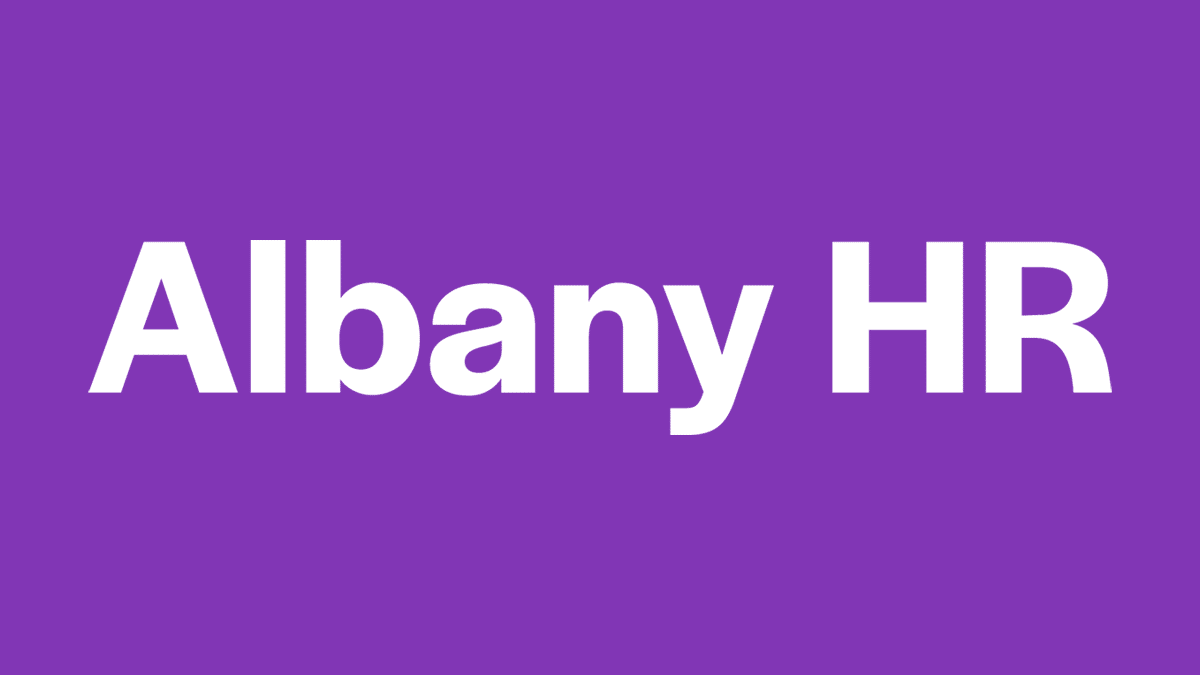Workplace Grievances
A grievance in the workplace refers to a formal complaint raised by an employee concerning unfair treatment, workplace issues, or breaches of policies or employment terms. Common grievances include disputes over pay, harassment, bullying, discrimination, or unsafe working conditions.
Addressing grievances effectively is critical for maintaining a fair and respectful work environment, preventing conflict, and ensuring legal compliance.
Our Expertise
Albany HR are experts in supporting organisations with the grievance procedure for resolving employee complaints in a fair, timely, and structured manner. This process typically includes conducting an investigation, holding a hearing, and determining an outcome. Good practice in grievance handling requires clear policies, consistent procedures, and adherence to employment laws.
Policies should include how grievances are raised, the timeframe for response, and the roles of all parties involved. An effective grievance procedure ensures transparency, fairness, and respect for the employee’s concerns while protecting the rights of the employer.
How We Help

Understanding the Issue

Conducting Investigations and Reports

Scheduling and Arranging Interviews

Interviewing Witnesses and Compiling Questions

Facilitating Grievance Hearings

Providing Supporting Paperwork and Final Outcome

Training Managers on Grievance Handling
Our Services

HR Packages
When you choose a HR package, our HR Consultants become your trusted partner delivering ongoing support. Our first step is to conduct an HR audit. We then work with you to create a future-thinking people plan. Your policies and procedures are fine-tuned, and we work collaboratively and proactively on your people plan throughout the year.
HR Project Support
Sometimes you reach a change point, or your existing HR structures are at their limits, and you would like targeted support where and when you need it. We help you deal with complex, and often time-consuming, people challenges, allowing you to focus on what your business needs to grow and what you need for peace of mind.
HR Document Support
Your policies, employment contracts, and employee handbook are essential to help your employees understand who you are and set the right expectations. Whether you’re a start-up, a growing business, or your documents need a refresh, we supply easy-to-understand documents that engage your employees, reflect your values and ensure you’re legally compliant.
“We are extremely pleased with the exceptional service delivered by Albany HR who have assisted Victim Support Scotland with HR interim support and project work – notably implementing our new HR system. At each stage, our consultants have taken the time to understand us, our culture, and what is important to us to deliver tailored support to our organisation.”
FAQs
What steps should be followed to ensure that the grievance process is conducted fairly and in line with employment laws? 
To ensure fairness, employers should follow the ACAS Code of Practice, which includes conducting a thorough investigation, offering representation, and allowing the employee to appeal the decision. Transparent communication, impartiality, and documenting each step are essential to ensure compliance with employment law.
How can managers minimise legal risks when handling employee grievances, particularly in terms of discrimination or unfair dismissal claims? 
Managers can minimise legal risks by treating all grievances seriously and investigating them promptly and impartially. Maintaining detailed records, following established procedures, and seeking legal or HR advice when dealing with sensitive issues such as discrimination or unfair dismissal claims are essential to protecting the organisation.
What is the appropriate timeline for responding to a formal grievance, and how can we ensure all parties remain informed throughout the process? 
While there is no fixed legal timeline, it is advisable to acknowledge a formal grievance within a few days and complete the process within a reasonable timeframe, typically 1-2 weeks. Regular updates should be provided to both the complainant and any other relevant parties to ensure transparency and manage expectations.
How should sensitive grievances, such as those involving harassment or bullying, be managed to protect employee confidentiality and minimise workplace disruption? 
Sensitive grievances should be handled with strict confidentiality, limiting information sharing only to those directly involved in the investigation. Managers should provide support to affected employees, use discreet communication methods, and ensure that any investigation or resolution process is done in a way that minimises workplace disruption while addressing the issue effectively.
